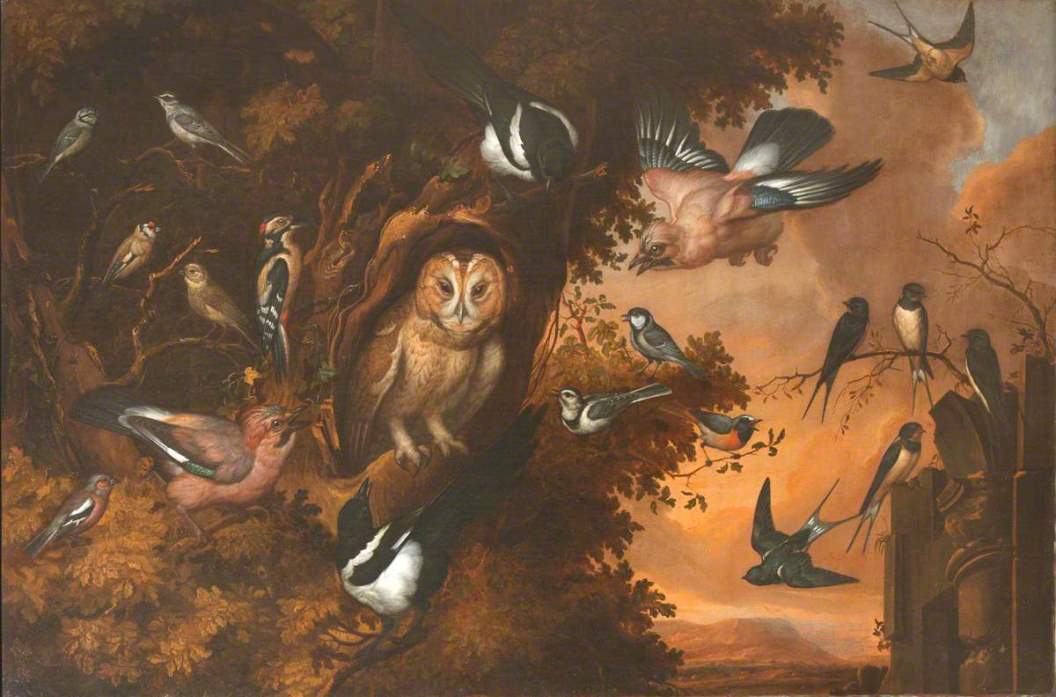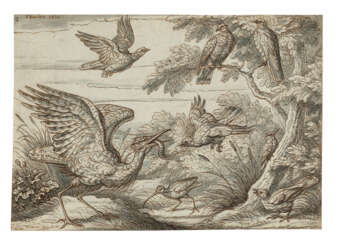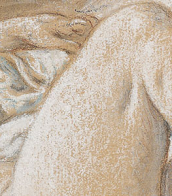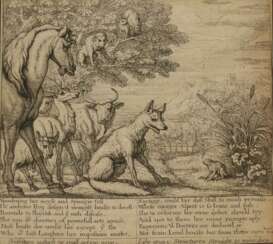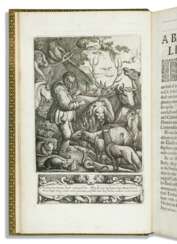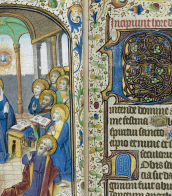francis barlow (1626 - 1704)
Aesop (Latin: Aisopos,) was a legendary philosopher and fable poet of ancient Hellas.
Researchers still argue whether it was a real person or behind this name is a collective image. According to Herodotus, Aesop was a slave and lived about 620-564 BC. The birthplace of the poet-fable writer is considered to be Phrygia, which is located on the peninsula of Asia Minor. Aesop was a slave of the Hellenic Iadamon, who lived on the island of Samos, who later granted the fable writer freedom.
The talented Greek was known not only for his fables, but also for his famous sayings and parables. Aesop's allegorical and moralizing fables are characterized by brevity and wisdom. In them he ridiculed all sorts of human vices - greed, cunning, greed, self-love and envy. The main characters of fables, as a rule, were animals, and the characters of the plot sometimes also acted as people and the gods of Olympus.
Aesop's original works have not survived. The most ancient "fables of Aesop" have reached us in later poetic revisions - (Latin) Phaedrus (I century), (Greek) Babrius (II century) and (Latin) Avianus (early V century). Aesop's work has left a significant trace in European culture, and his aphorisms have become well-known, remaining relevant today. And the hidden subtext of the work is called Aesopian language. Today's readers know these works in the arrangements of Jean de La Fontaine, Ivan Krylov, Gulak-Artemovsky and other fable writers.
